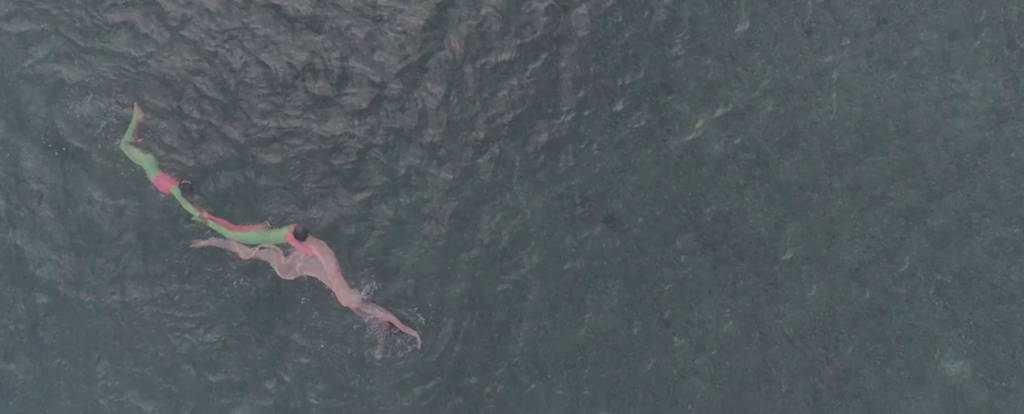
Cecilia Bengolea, Dancehall Weather, Tryptique, 2019, video still
Cecilia Bengolea, Dancehall Weather, Tryptique, 2019, video still

Over the past decade Cecilia Bengolea has developed a collaborative practice rooted in the reconfiguration of the human relationship with nature and its merger with the body. To produce her films and performances, the Paris-based Argentinian dancer and choreographer has conducted research on community dance forms, deep-sea habitats, animal behaviors, animist beliefs, gang semiotics, and observational studies of the body’s fluid systems to interpret the ecological and social effects of human activity.
Presented in an algorithmically-generated sequence and captured across various locations in Jamaica, Oneness (2020) is Bengolea’s video archive of dynamic footage of dancehall culture that builds to a fluid dance performance choreographed for the Jamaican national synchronized swimming team. “Working on steps is just one part of the endeavor to synchronize and compose ourselves within a state of greater liquidity,” Bengolea explains. “The movements I’m drawn to are those in which the body is driven by a physical intelligence of its own. Through ritual and repetition, arms, legs, and torso seem to develop an independent memory. Relieved of the cumbersome call-and-response mechanism that separates action from thought, the body begins to describe a life of its own.”
Her newly commissioned performance continues Bengolea’s choreographic experiments that test the spiritual contours of collectivity, consciousness, empathy, and healing. To do so, she integrates centuries-old systems of energy mobilization and coordinated body-posture, movement, breathing, and meditation and her training in kung fu, Thai boxing, qi gong, and tai chi with western somatics like Body-Mind Centering, a movement practice that allows practitioners to perceive their internal rhythms, bodily fluids, and structures and inform their gestures through sensations and not only anatomical imagination. Proposing an inside-out transformation by aligning internal cellular movement with external expression, Cecilia Bengolea has created workshops in collaboration with Gwangju-based Taekkyeon practitioners between seven and eleven years of age for the Biennale procession. Children are called to lead the audience and perform instructions of respiration, giving form to the conditions of sensing, the sculpting of our future in oneness and in togetherness with life, in transit between the physical and spiritual, in one body and mind.
Cecilia Bengolea, Dancehall Weather, Tryptique, 2019, video still